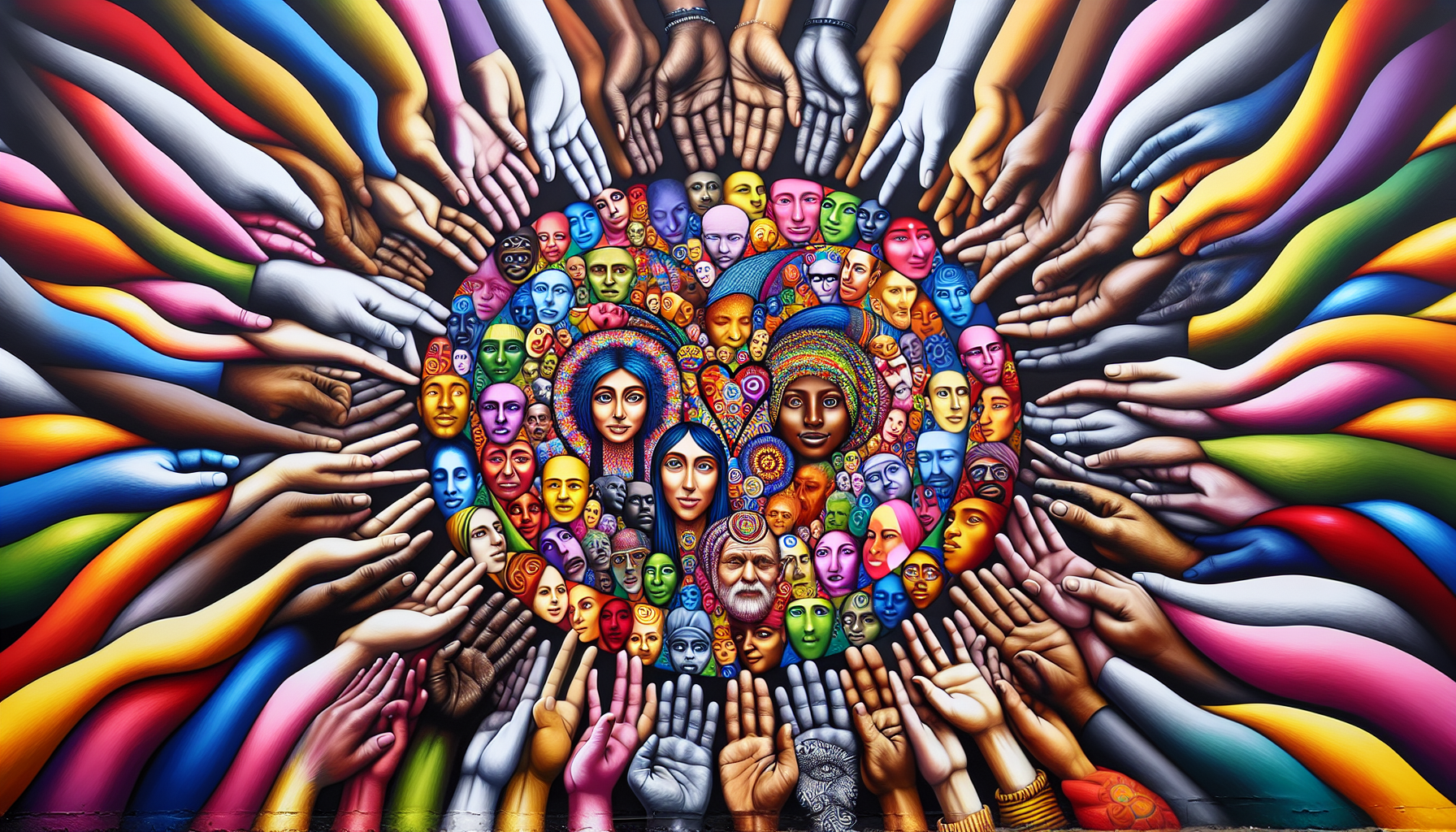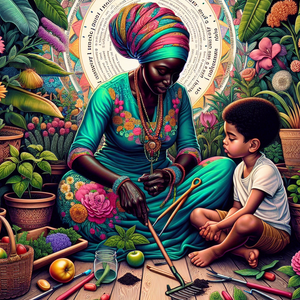The Role of Apples in Folklore and Mythology

One of the most iconic stories involving apples is that of the Garden of Eden, found in the Book of Genesis. Although the original text does not specify the fruit as an apple, later interpretations and artworks have cemented the apple's role in this narrative. The apple symbolizes temptation and the acquisition of knowledge, leading to humanity's fall from grace. In this biblical tale, Eve's decision to eat the apple—often depicted as a beautiful, shiny fruit—represents the allure of the forbidden and the complexity of choice. This story has had profound cultural implications, influencing not just religious thought but also the way apples are viewed in various societies. The notion of the "forbidden fruit" has made the apple a powerful symbol of desire, knowledge, and the consequences of human curiosity. The apple's association with sin and temptation continues to resonate in various artistic and literary interpretations, showcasing its lasting impact on cultural consciousness.
Golden Apples of Greek Mythology
In contrast to the biblical narrative, Greek mythology presents apples as symbols of beauty, divine favor, and reward. The golden apples of the Hesperides were said to bestow immortality and were fiercely guarded by a dragon, representing both the value and the danger associated with obtaining such a prize. These mythical apples were central to many tales, including the story of Hercules, who was tasked with retrieving them as one of his twelve labors. This myth underscores the apple's association with reward and the pursuit of greatness. The allure of the golden apple also appears in the tale of the Judgment of Paris, where the apple granted to the fairest goddess ultimately led to the Trojan War. This narrative illustrates how apples can symbolize the intersection of beauty, desire, and conflict. The golden apple's enduring presence in modern literature and film—often representing unattainable desires—highlights its lasting impact on our cultural imagination.
Celtic and Norse Legends: Apples as Life and Death
In Celtic mythology, apples are often linked to the Otherworld—a place of eternal youth and abundance. The story of the magical apple tree, which bore fruit that granted everlasting life, reflects the deep connection between apples and the cycle of life and death. The famous tale of the Isle of Apples (Emain Ablach) depicts a land where apples grow abundantly, symbolizing not only nourishment but also a bridge between life and the afterlife. Similarly, in Norse mythology, the goddess Idun was the keeper of apples that granted the gods their youth. When Idun was captured, the gods aged rapidly, signifying the apple's crucial role in maintaining vitality and immortality. This recurring theme of apples as life-giving entities suggests that they have historically represented nourishment, renewal, and the promise of vitality.
Cultural Symbolism and Modern Interpretations
As societies evolved, so did the symbolism of apples. In contemporary culture, apples are often seen as symbols of health, knowledge, and education, epitomized by the adage "an apple a day keeps the doctor away." This modern interpretation ties back to the historical narratives of apples as sources of sustenance and wisdom, reflecting society's ongoing relationship with this fruit. Apples have also been embraced in various cultural celebrations, such as Rosh Hashanah, where they symbolize sweetness and the hope for a fruitful year ahead. The apple's role in traditions—ranging from Halloween bobbing to Thanksgiving pies—demonstrates its continued relevance in our lives, symbolizing abundance, celebration, and community.
The apple, a seemingly simple fruit, is steeped in rich folklore and mythology that spans cultures and centuries. From its role as the forbidden fruit in the Garden of Eden to its depiction in Greek myths as a symbol of immortality, the apple encapsulates complex themes of temptation, knowledge, and the duality of life and death. As we continue to enjoy apples in our daily lives, it is essential to recognize and appreciate the profound narratives that have shaped our understanding of this beloved fruit. Through these stories, apples remind us of the deeper meanings embedded in our cultural practices and the timeless human experiences they reflect. In a world where the stories we tell shape our identities, the apple remains a powerful emblem of our collective history and imagination.
Cultural Heritage Curator
Museums, cultural institutions, and historical societies
Responsibilities
Develop and manage exhibitions focused on folklore and mythology, showcasing artifacts and narratives from various cultures.
Conduct research on cultural heritage themes, ensuring accurate representation and interpretation of historical contexts.
Collaborate with local communities to incorporate their stories and artifacts into exhibitions.
Required Skills
Strong research and analytical skills, particularly in cultural anthropology or history.
Excellent communication skills for engaging with diverse audiences and stakeholders.
Experience in museum studies or curatorial practices.
Folklore and Mythology Writer
Publishers, online magazines, cultural blogs, and educational platforms
Responsibilities
Create engaging content that explores various myths, legends, and folktales from around the world for publications or digital platforms.
Analyze and interpret cultural narratives, drawing connections to contemporary issues and themes.
Conduct interviews with cultural practitioners to gather authentic stories and insights.
Required Skills
Exceptional writing and storytelling abilities, with a focus on narrative structure and cultural sensitivity.
Knowledge of literary analysis and cultural criticism.
Familiarity with digital content creation and social media engagement.
Mythological Consultant for Media
Film studios, television networks, game development companies
Responsibilities
Advise writers and producers on the accurate representation of mythological themes and cultural elements in film, television, and video games.
Conduct workshops or lectures on relevant mythological topics to inspire creative storytelling.
Help create culturally sensitive narratives that respect the origins and meanings of folklore.
Required Skills
Deep understanding of global mythologies and their cultural significance.
Strong collaborative skills to work effectively with creative teams.
Experience in the entertainment industry or storytelling, with an emphasis on cultural representation.
Ethnobotanist
Research institutions, universities, and conservation organizations
Responsibilities
Conduct research on the cultural significance of plants, including apples, in folklore and traditional practices.
Collaborate with local communities to document traditional uses of plants in cultural narratives and rituals.
Analyze the impact of cultural practices on biodiversity and conservation efforts.
Required Skills
Background in botany, anthropology, or environmental science.
Strong fieldwork skills and experience with qualitative research methods.
Knowledge of ethnographic techniques and community engagement practices.
Cultural Program Coordinator
Cultural organizations, community centers, and educational institutions
Responsibilities
Design and implement educational programs that explore folklore and mythology through workshops, lectures, and community events.
Collaborate with educators, artists, and cultural leaders to create inclusive programs that celebrate diversity.
Evaluate program effectiveness and gather feedback to improve future initiatives.
Required Skills
Strong organizational and project management skills, with experience in community outreach.
Excellent interpersonal skills for building relationships with a variety of stakeholders.
Knowledge of educational theory and cultural studies.


